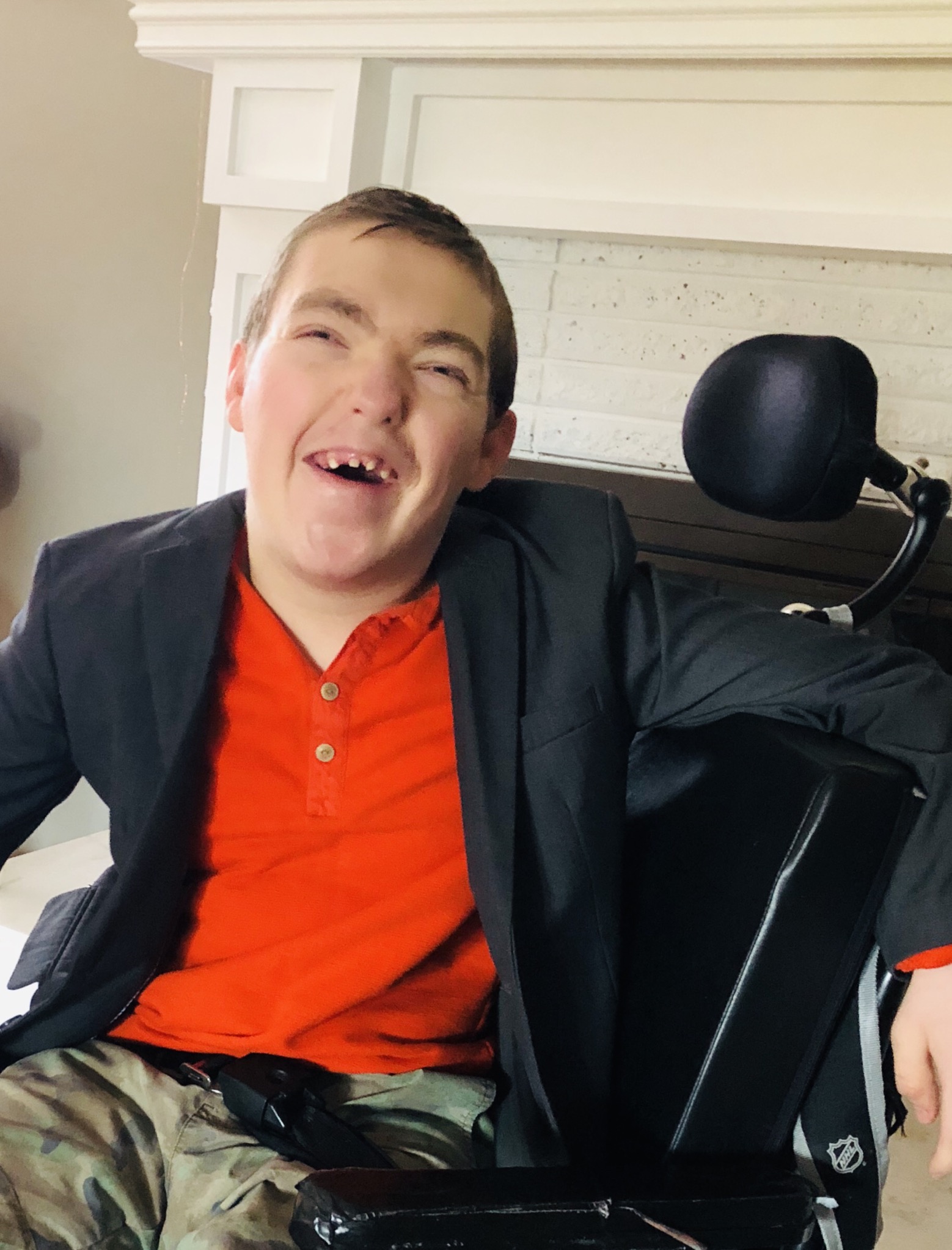The story of Tonya
David was born full-term. He was very small and his lungs were not developed enough to breathe on his own. He was placed on a Ventilator in the NICU. During treatment, he began to have seizure type activity. Doctors determined it to be tremors, due to the side effects of the medications used to keep him sedated while on the Ventilator.
David came home from the hospital with Oxygen and a Sleep Apnea Monitor. Although he was full-term, they told us he was like a premature baby (because he did not thrive well in the womb, due to my preeclampsia).
By six months of age, David was still on Oxygen, with reoccurring Pneumonia and breathing difficulties. He was very small and not reaching the milestones for his age. Although we were reassured that he just needed a year to catch up, mothers intuition made me feel otherwise. I decided to reach out to a Watch Me Grow program that was offered to NICU babies. It was the assessment through this program that started the ball rolling for a diagnosis.
The program led us to a team of specialists, who identified David as having certain features, which may indicate a chromosomal abnormality. Testing completed by a Geneticist confirmed a rare chromosomal diagnosis of 10p Deletion Syndrome with a Translocation of 13 (Short Arm).
At this time, David was considered to be the 28th reported case with 10p Deletion Syndrome. Based on information provided by the Genetic Doctor, 13 died at birth or before age 1, and the oldest reported case lived to be 7. Although we were placed in a database to find other families with this diagnosis, the years brought no connections. It would have helped through the years to have this connection and know we weren’t alone without answers.
David’s diagnosis came with multiple medical problems, including Hydrocephalus, Epilepsy, Seizures, Obstructive Airway Disease, Apnea (obstructive and central), Asthma, Atrial Septal Defect, Lung Disease, including reoccurring Pneumonia (bacterial, mostly resulting from seizure related aspiration) and Hydronephrosis.
By age 1, David was placed on Hospice Care and we all loved him as much as we could possibly love him. This is when his life of comfort measures started. It was a long year of specialists, hospitals, tests, and coming to terms that the doctors could not fix him. After a few months on Hospice, he was discharged to Home Care, and by age two the school was making home visits as part of the Early Learning Intervention. Although he was no longer on Hospice, David was medically fragile. When he was sick, he could become gravely ill very quickly, but he would bounce back every time. At one point, Hospice was offered a second time and we refused. Our intuition told us we would know when the time comes… David is now 22.
David has Athrophy of the muscle tone and is in a wheelchair. He cannot speak or care for himself. He will always require 100% care. He loves school, people, attention, hugs, playing ball and patty cake. His laugh is contagious. His biggest health issues as a young adult are seizures and the hole in his heart. His specialsts are at U of M Hospital and he gets the best treatment possible, although, due to his rare syndrome, we live a life of treating the symptoms and continued comfort measures.
I’ve become an expert with David’s diagnosis and medical problems. With such a rare syndrome, hospitals, doctors, and other healthcare professionals rely on me to educate them on 10p Deletion Syndrome and all the medical problems associated with it. I asked a doctor years ago how come no one wants to learn more or study my son’s rare disease? He replied “Because of how rare it is, we may never see another case like this in our career.”
David has outlived his prognosis, and although we were told he may not live much into young adulthood, no one really knows. His fight is strong and the hard thoughts of who will care for him when I’m gone begin to set in.
Research indicates there are approximately 40 cases of 10p Deletion Syndrome and I have continued hopes to come in contact with a family someday. I would like to be here for support when they are ready.
I am supporting Rare Disease Day in honor of all the people and families dealing with a rare disease in hopes of bringing recognition. #showyourrare
